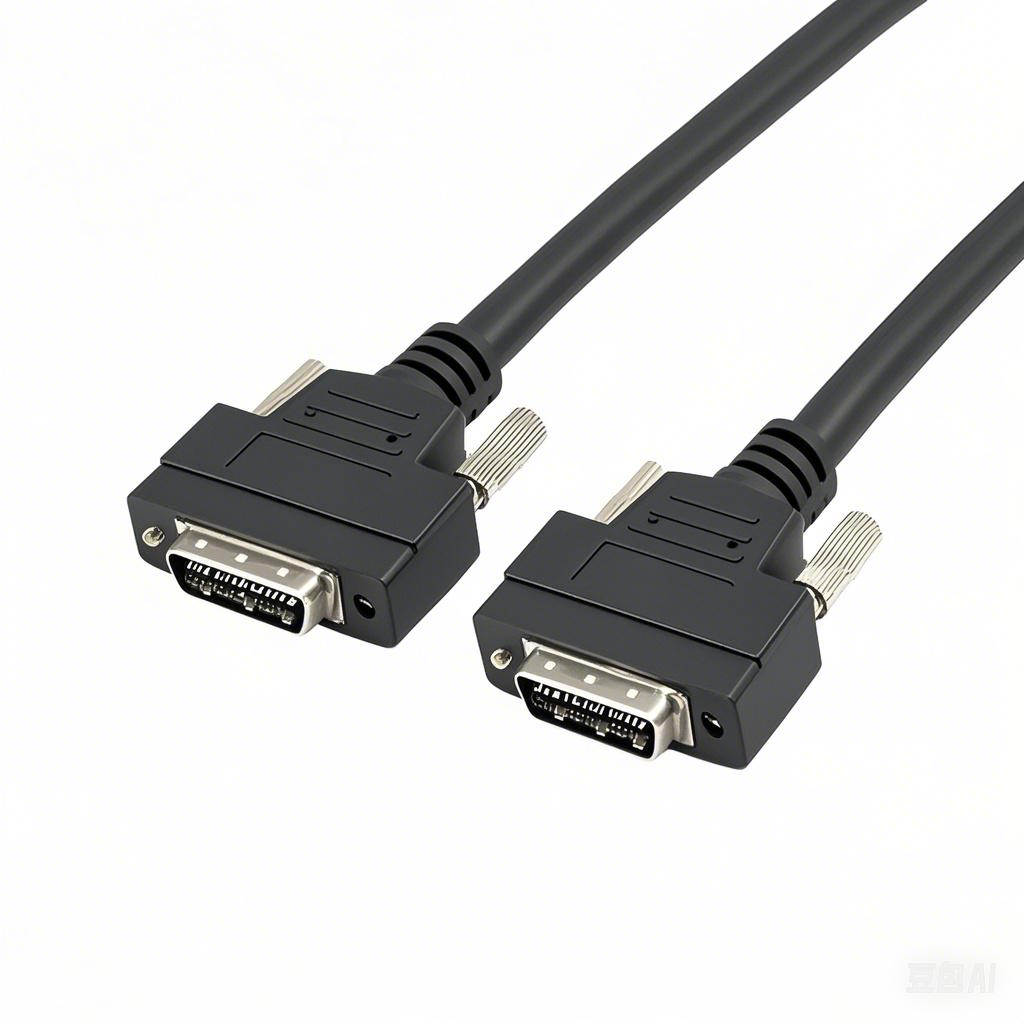What Is a Low-Latency Visual Cable?
In an era where high-definition (HD), 4K, and even 8K visual transmission are ubiquitous—from gaming setups to professional medical imaging—signal delay, or “latency,” has become a critical pain point. A low-latency visual cable is a specialized data transmission cable engineered to minimize the time it takes for visual signals (such as video, images, or real-time feeds) to travel from a source device (e.g., a gaming console, camera, or computer) to a display device (e.g., a monitor, TV, or projector). Unlike standard visual cables, which prioritize basic connectivity over speed, low-latency models are optimized to reduce signal lag, ensuring that the displayed content aligns nearly instantaneously with the source.
Core Characteristics of Low-Latency Visual Cables
The value of low-latency visual cables lies in their targeted design, which addresses three key challenges of signal transmission: latency, interference, and compatibility.
- Minimized Signal DelayLow-latency cables use high-conductivity materials (e.g., oxygen-free copper or silver-plated conductors) to speed up signal transmission. They also feature streamlined insulation and shielding layers that reduce signal “drag”—a common cause of latency in standard cables. For example, a high-quality low-latency HDMI 2.1 cable can achieve latency as low as 1–2 milliseconds (ms), compared to 5–10 ms for a basic HDMI cable.
- Strong Anti-Interference CapabilitiesVisual signals, especially high-resolution ones, are vulnerable to electromagnetic interference (EMI) from nearby devices (e.g., routers, power cables). Low-latency visual cables typically include multi-layer shielding (such as aluminum foil + braided copper) to block EMI. This not only preserves signal integrity but also prevents “artifacts” (e.g., screen flicker, color distortion) that can occur with delayed or disrupted signals.
- Broad Compatibility with High-Performance StandardsTo support modern visual demands, low-latency cables are built to comply with latest industry standards. This includes HDMI 2.1 (for 8K/120Hz video), DisplayPort 2.0 (for professional monitors), and SDI (for broadcast and live production). They also work seamlessly with devices that require real-time feedback, such as gaming controllers, industrial cameras, or surgical monitors.
Key Application Scenarios
Low-latency visual cables are not just “upgrade accessories”—they are essential for scenarios where even tiny delays can impact performance, safety, or user experience.
- Gaming: Competitive gamers rely on low-latency cables to ensure their in-game actions (e.g., aiming, jumping) translate to on-screen movement instantly. A 5ms delay, for example, can mean the difference between winning and losing in fast-paced games like Valorant or Fortnite.
- Professional Media Production: Video editors, live streamers, and broadcasters use low-latency cables to preview high-resolution footage in real time. This eliminates the “lag” between editing a clip and seeing the result, speeding up workflow.
- Medical Imaging: In surgeries or diagnostic procedures (e.g., MRI, endoscopy), low-latency cables transmit clear, real-time images to doctors’ monitors. Delays here could lead to misjudgments or errors in critical care.
- Industrial Monitoring: Factory automation systems use low-latency visual cables to send feeds from surveillance cameras or machine vision sensors to control rooms. Instantaneous visual feedback helps operators detect issues (e.g., equipment malfunctions) quickly.
How to Choose a Reliable Low-Latency Visual Cable
For users searching for a low-latency visual cable, focusing on these three factors ensures you get a product that delivers on its promises:
- Check Latency Specifications: Look for cables that explicitly list latency values (e.g., “≤2ms”) rather than vague claims like “low latency.” Avoid cables without clear specs—they may not meet true low-latency standards.
- Verify Shielding and Conductor Material: Prioritize cables with multi-layer shielding and high-quality conductors (e.g., oxygen-free copper). These features directly impact both latency and signal stability.
- Match the Cable to Your Use Case: For gaming or home theater, choose HDMI 2.1 or DisplayPort 2.0 cables. For industrial or medical use, opt for ruggedized cables (e.g., SDI cables with durable jackets) that can withstand harsh environments.
Why Choose FRS Factory for Low-Latency Visual Cables?
When it comes to low-latency visual cables, reliability and performance start at the source—and FRS Factory stands out as a trusted manufacturer with a focus on precision engineering. With years of experience in cable design, FRS prioritizes every detail that matters: from using premium oxygen-free copper conductors to implementing 3-layer shielding, ensuring each cable delivers consistent low-latency performance (≤2ms for HDMI 2.1 models) and zero signal interference.
FRS also understands that different users have unique needs. Whether you need a 2-meter cable for your gaming setup, a 10-meter ruggedized cable for industrial monitoring, or a custom-length solution for medical equipment, FRS offers tailored options with strict quality testing (each cable undergoes 100+ hours of latency and durability checks). For anyone seeking a low-latency visual cable that combines performance, durability, and value, FRS Factory delivers products you can rely on—no compromises.











